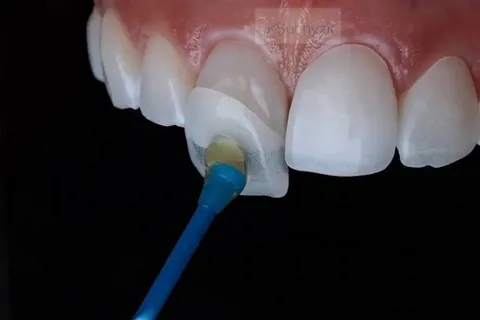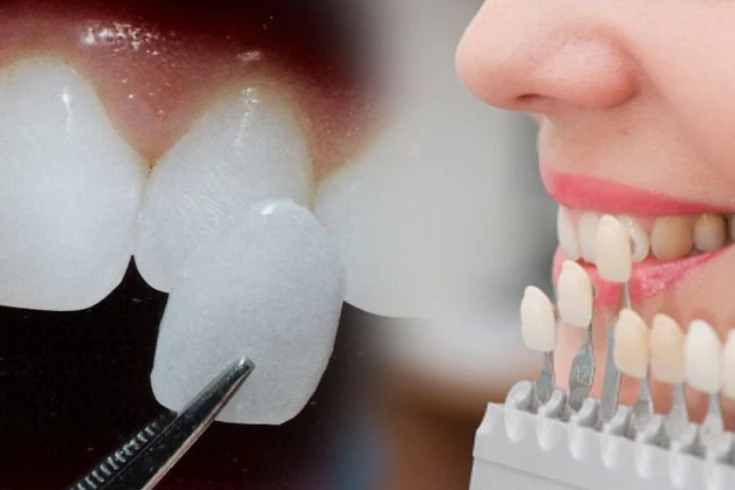Dental implants are a reliable, long-term solution for lost teeth but are quite expensive, making them unaffordable for many. Insurance coverage for dental implants can also be challenging to obtain as many providers classify implants as cosmetic rather than medically necessary. This blog will guide you through the process of dental implant surgery and how to get dental insurance to pay for dental work.
Understanding Dental Implants
Firstly, dental implants are restorative gadgets surgically embedded into the jawbone to replace lost teeth. Additionally, a full dental implant framework regularly incorporates three parts:
Embed Body
The embedded body could be a screw-like therapeutic gadget surgically embedded into the jawbone, serving as a substitution for a lost tooth’s root.
Projection
Projection is to the plan perspective where the embed amplifies or projects into the jawbone.
Crown
The crown is a fake tooth that connects to the projection, which is associated to the implant body. Check our dental crowns services and procedures here.
What is Dental Implant Insurance?
Dental implant insurance is a type of dental insurance plan that helps with the costs of getting dental implants. These implants are a popular way to replace missing teeth. The insurance can cover costs such as the implant procedure, anesthesia, and the replacement tooth or bridge attached to the implant. Coverage varies between policies, so it’s essential to check what’s included and any limitations or waiting periods. Some plans may require pre-approval.
Cost of Dental Implants with Insurance
With insurance, the cost of dental implants depends on your coverage details. Coverage percentages after the deductible can range from 10% to 50%. For a $2,000 implant, your out-of-pocket costs could range from $1,000 to $1,800. Adding the cost of the crown and abutment, the total cost can be between $2,113 and $3,805 after insurance, depending on your policy’s coverage.
Cost of Dental Implants Without Insurance
Without insurance, the costs for dental implants can be substantial. Here are some average prices:
- Extraction: $135
- Bone Graft: $552
- Dental Implant: $2,013
- Abutment: $718
- Crown: $1,511
The total cost for one implant can be around $4,929. Costs increase with multiple implants or more complex procedures like implant-supported bridges or dentures, and prices are rising yearly due to inflation.
How to Get Insurance for Dental Implants?
Research
Use tools like Yelp and Google to find dental insurance plans that suit your needs and budget. Knowing how to get dental insurance is the first step towards managing the costs of dental implants.
Compare Services
Compare the services they offer, premiums, discounts, and any waiting period or restrictions as these things matter the most. This comparison will guide you on how to get dental insurance that fits your requirements.
Enrolment
Once you’ve chosen a plan, you can enrol either online or by contacting the insurance company directly. Understanding how to get dental insurance effectively involves knowing the enrolment process.
Provide Information
During the application process, you’ll need to provide personal information, such as your name, address, contact number, and your dental history. This step is crucial in the process of how to get dental insurance.
Instalment
Pay the specified premiums according to the instalment plan indicated by the insurance provider. Some plans may offer monthly, quarterly, or annual instalment options. Managing premiums is part of understanding how to get dental insurance.
Platforms Providing Dental Implant Insurance
- Employer-Provided Plans: When joining a company, your employer may offer benefits that include dental insurance plans. Though rare, these can be very helpful in how to get dental insurance.
- Health Insurance Marketplaces: Visit your state’s health insurance marketplace or the federal marketplace at HealthCare.gov. These platforms often provide options for dental insurance plans that can be purchased separately or as part of a health insurance package.
- Dental Insurance Companies: Research and compare plans directly from dental insurance companies. Some well-known providers include Delta Dental, MetLife, Cigna, Aetna, Humana, and Guardian.
- Insurance Brokers/Agents: Consult with insurance brokers or agents who specialize in dental insurance. They can help you compare different plans and find one that suits your needs, including coverage for dental implants.
- Dental Schools: Some dental schools offer dental plans or can provide guidance on affordable dental insurance options. They often have clinics that offer services at reduced rates.
- Professional Associations: If you belong to a professional association or union, check if they offer group dental insurance plans. These plans can sometimes provide better coverage and rates.
- Online Comparison Websites: Use online comparison tools and websites like eHealth, DentalPlans.com, or Insurance.com to compare various dental insurance plans. These tools allow you to filter plans based on coverage needs and budget.
- Medicare/Medicaid: If you are eligible, check if Medicare Advantage plans or state Medicaid programs offer dental benefits. Coverage for dental implants under these programs is often limited but worth investigating.
- Local Insurance Offices: Visit or contact local insurance offices to inquire about dental insurance plans available in your area. They can provide personalized assistance and information.
Coverage for Different Parts of the Procedure
- Tooth Extraction: If you have a damaged tooth that needs to be removed before the implant, this procedure is often covered by insurance.
- Bone Grafting: Sometimes, bone grafting is required to strengthen the jawbone. Insurance for this will vary, as some companies might not see it as essential.
- Implant Placement: This is the primary part of the procedure. Some plans cover up to 50% of the cost, while others cover less.
- Setting the Crown: The crown is the visible part of the implant and another major procedure. Coverage here also varies, with some plans covering up to 50%.
How to Get Dental Insurance to Pay for Dental Work?
- Analyze Your Policy: Review coverage details, annual maximums, deductibles, co-pays, and network providers.
- Schedule Preventive Care: Use your insurance’s full coverage for routine cleanings and exams to prevent costly treatments.
- Get a Pre-Treatment Estimate: Request an estimate from your dentist and submit it to your insurance to know your coverage in advance.
- Use In-Network Providers: Choose dentists within your insurance network to reduce out-of-pocket costs.
- Plan Treatments Strategically: Spread out extensive dental work over two calendar years to maximize annual benefits.
- Appeal Denied Claims: If a claim is denied, gather supporting documentation and appeal to your insurance company.
- Discuss Financing Options: Explore payment plans or financing options offered by your dental office.
- Consider Supplemental Plans: Look into supplemental insurance or discount plans for additional savings.
- Utilize HSA/FSA: Use pre-tax funds from Health Savings Accounts or Flexible Spending Accounts to pay for dental work.
- Maintain Good Oral Hygiene: Prevent costly dental issues with regular brushing, flossing, and dental check-ups.
Frequently Asked Questions
What is the waiting period for dental implant insurance coverage?
Many dental insurance plans have a waiting period before they cover major procedures like dental implants. This period can range from six months to 18 months (about 1 and a half years) or more, depending on the policy.
Can I get coverage for dental implants if I have pre-existing conditions?
Coverage for dental implants related to pre-existing conditions can be limited. Some plans may not cover implants if the tooth was missing before the policy start date, while others may require a waiting period.
Do dental insurance plans cover the entire dental implant process?
Coverage can vary for different parts of the implant process. Some plans may cover the implant placement but not the crown or abutment or may have other coverage levels for each part.
How can I maximize the benefits of my dental implant insurance plan for implants?
By understanding your policy details, you can make informed decisions about your dental care and avoid unexpected expenses. Additionally, knowing which insurance plans your local dental providers accept can help you choose a provider that will maximize your coverage.





